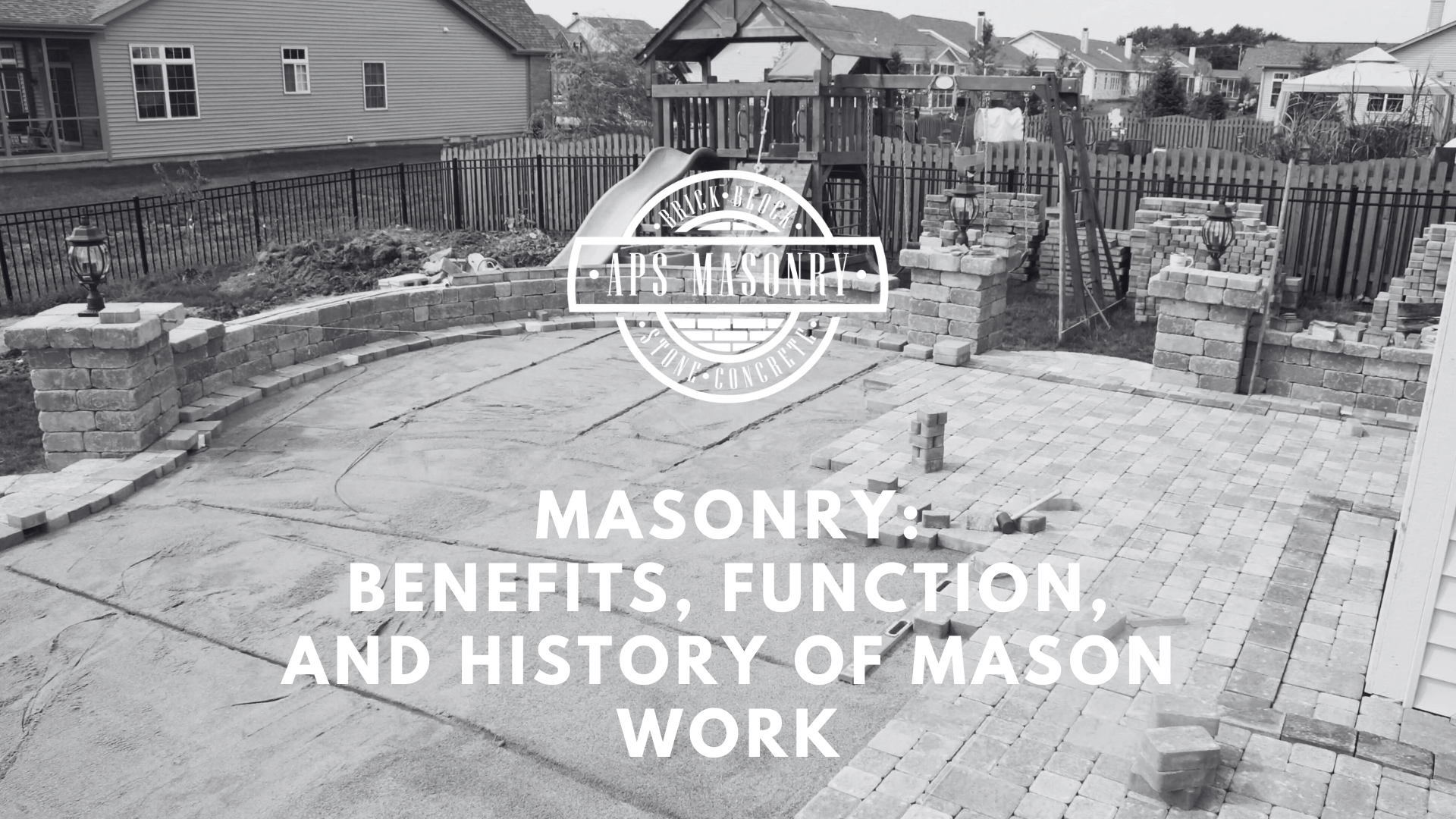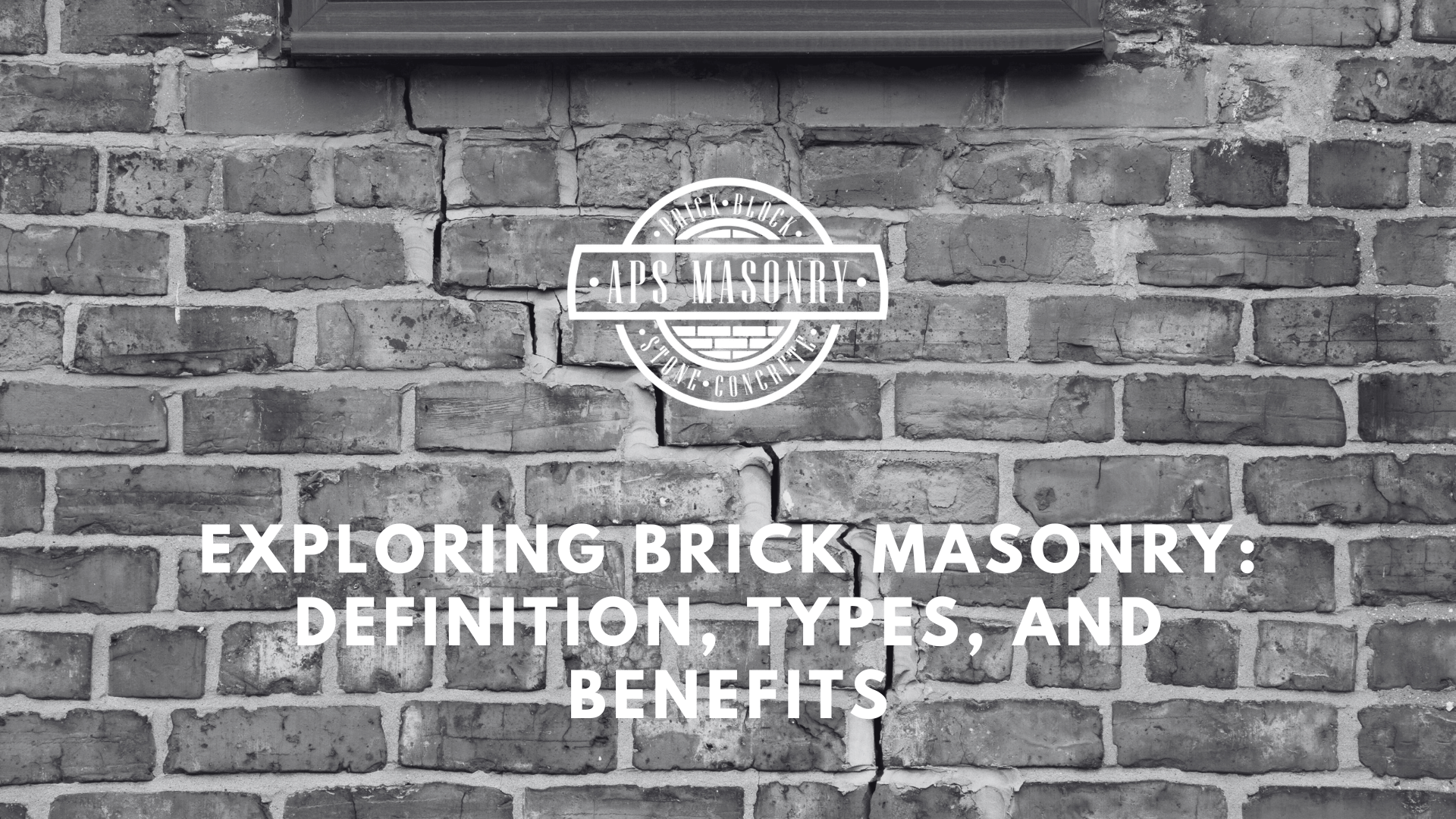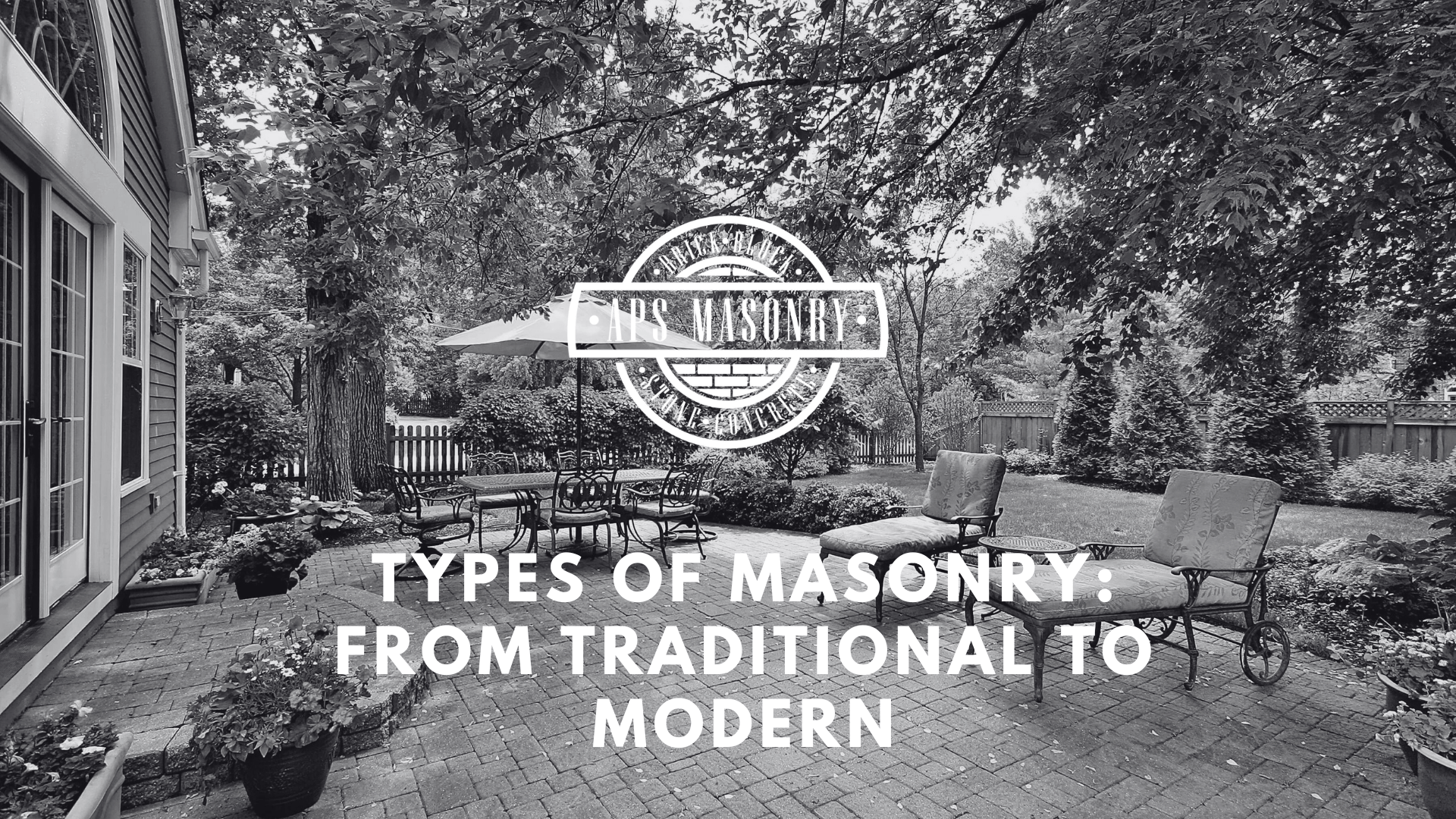Brick Masonry: Definition, Types, Benefits
Brick masonry is a timeless construction technique that uses bricks and mortar to build durable structures like walls and arches, known for their...

Masonry offers many benefits, such as durability, fire resistance, and energy efficiency. Enhances property value and provides excellent insulation, making it a great choice for construction projects. Whether you're building a new home or renovating an old one, masonry can bring both beauty and strength to your structure. Learn about the benefits and techniques of masonry to ensure your project stands the test of time.
Masonry is a construction technique that involves assembling individual materials, such as bricks, stones, or concrete blocks, using mortar as a binding material. It is a versatile and time-tested method used for centuries to build structures of various sizes and complexities.
Masonry offers structural integrity and aesthetic appeal, making it a popular choice in construction. The skilled craftsmanship of masons ensures precise and durable construction, resulting in buildings that can withstand the test of time and external forces. From historic landmarks to modern homes, masonry remains integral to our built environment, blending functionality with architectural beauty.
The benefits of masonry work are extensive, from improved durability to increased resistance to moisture. Let's look at the best benefits of masonry work:
Masonry has stronger durability than other types of construction. Research shows that Brick constructions are built with 100 years or beyond durability according to the International Association of Certified Home Inspectors (IACHI). Due to the strength of materials like bricks, stones, and concrete blocks, masonry house construction offers exceptional durability. The solid structure of these materials and the use of mortar create stable and resilient homes. Masonry withstands various stresses, extreme conditions and reduces the need for frequent repairs, making it a cost-effective choice.
Masonry work offers the significant advantage of increased fire resistance. A non-load-bearing wall composed of small-sized, high-density cotton grass bricks exhibits excellent fire resistance, with a duration of over 70 minutes based on the test results of the Experimental analysis on fire-resistant performance of cotton straw brick wall. This resistance is more than three times that of a comparative wooden wall. The dense composition of materials like bricks and concrete blocks creates solid masonry walls. These materials help stop potential fire spread and provide valuable evacuation time.
Masonry's superior fire resistance makes it a preferred choice for buildings requiring enhanced safety measures, like schools, hospitals your home.
The sturdy and compact form of masonry materials, such as bricks and concrete blocks, limits pests' access points, offering better natural resistance. In areas with a high concentration of insects, natural resistance reduces the need for pest control measures, making them a practical choice when considering what type of structure would suit best. Approximately 50% of Florida's six million existing residences are of concrete block construction, according to a Florida Exterior Wall Insulation Field Test.
Masonry in construction offers a longer-lasting lifespan thanks to the inherent strength and resilience of materials like bricks and concrete blocks. These durable materials withstand environmental factors, meaning you can focus on something else rather than maintenance or the need for repairs or replacements. Given adequate upkeep, brick houses can endure for up to 500 years or more. This longer lifespan provides peace of mind, knowing your structure will endure for years.
Due to the thermal properties of materials like bricks and concrete blocks, masonry work provides enhanced insulation. A recent study found that fly ash blocks in new brick masonry construction offer environmental benefits and effectively enhance thermal insulation properties (Li, J., Li, J., Cao, W., & Chen, G. 2015). The high thermal mass of the materials used regulates indoor temperatures, reducing temperature changes and promoting a comfortable environment. Solid construction minimizes air leakage, improving energy efficiency and saving you money.
Overall, masonry's superior insulation makes it a preferred choice for individuals seeking a more environmentally friendly project.
Masonry work offers better design flexibility, allowing for various architectural possibilities. The benefits of having a flexible design for your home are that it allows a building to adapt and evolve alongside the owner's changing needs. From classic to modern styles, masonry allows you more creative expression in design, incorporating different colors and finishes. The versatility of materials enables intricate detailing and diverse textures. This flexibility offers you the confidence to create that dream home that seamlessly integrates with your neighborhood or even allows you to make a bold statement.
Masonry work is extremely environmentally friendly by using natural and locally sourced materials, reducing carbon emissions associated with transportation. Research shows that living in a stone structure is low maintenance, eco-friendly, and allows excess stone use for home finishings. It doesn't release toxins, requires no additional resources, and saves on paint and finish. Furthermore, masonry's exceptional thermal properties improve energy efficiency, reducing energy consumption for heating and cooling. If you have green fingers, then masonry is for you.
Masonry work has some of the best soundproofing in construction, effectively reducing noise between spaces. A typical quiet room has a noise level of approximately 35 dB. Anything exceeding this, such as normal conversations at around 55dB, can be perceived as loud noise. A standard brick wall can block an average of 40dB, while a stud wall only blocks 30dB, leaving 15dB to 20dB that needs to be blocked for optimal peace and quiet. Whether you want to shut out noisy neighbors or keep conversations more private in your home, masonry's soundproofing capabilities provide a more comfortable and serene living or working space. By reducing noise pollution and improving sound comfort, masonry work enhances the overall quality of the environment, promoting tranquility and well-being.
Masonry work significantly increases property value. For centuries, brick construction has served as a safeguard against the unpredictable nature of the real estate market. As a result, most brick homeowners have experienced an above-average return on their investment, regardless of the circumstances. Potential buyers and investors recognize masonry-built structures' superior quality and resilience, providing reassurance and increasing desirability. Whether it's a charming brick facade or an impressive stone accent, masonry adds a touch of elegance and sophistication that can significantly elevate the market value of your property.
The dense and watertight nature of masonry materials safeguards structures and ensures its long-lasting durability. Although relative humidity can influence moisture levels to some extent, drywall is deemed to have an acceptable moisture level when its moisture content falls within the range of 5 to 12%, according to the CIBSE Guide A: Environmental Design. Exposed brickwork and concrete are measured at 5%. Masonry work excels in resisting moisture, preventing issues like mold and decay. This moisture resistance reduces the need for extensive maintenance and repairs, providing peace of mind.
The primary function of masonry is to provide structural support and stability to buildings and other constructions. Masonry serves as a reliable and durable framework, ensuring the integrity of buildings by withstanding the effects of gravity, wind, seismic activity, and other external forces. In addition to its structural role, masonry contributes to a structure's aesthetics, adding texture, pattern, and character to architectural designs. Its ability to insulate against heat, noise, and fire further creates safe, comfortable, and energy-efficient spaces.
Essential skills and techniques in masonry include accurately laying and leveling bricks, stones, or blocks, creating smooth mortar joints, cutting and shaping materials, reading blueprints, selecting and mixing materials, skilled tool handling, complying with safety practices, and effective problem-solving. These skills are crucial for achieving quality masonry work and ensuring structural integrity and aesthetic appeal. Understanding these skills will help you make the best choice when deciding which masonry team to contract.
Several types of masonry differ subtly, but brick, stone, and concrete are the three main types. Each type of masonry has unique characteristics and advantages, allowing for a wide range of design possibilities and structural solutions in construction projects. It is important to discuss and research which type of masonry would be better suited for your project.
Several types of common masonry materials are used in construction:
Brick masonry is renowned for its durability, longevity, and timeless aesthetic appeal, making it the preferred construction material. Bricks provide a classic look that remains popular in contemporary projects.
Stone masonry adds elegance and charm to any project. Stone masonry offers versatility with options for dressed or undressed stones. Dressed stone involves cutting and shaping stones to specific dimensions, producing a refined and uniform appearance. On the other hand, undressed stone showcases the raw beauty of its natural shape and texture.
Concrete blocks, or concrete masonry units (CMUs), are larger than traditional stone or brick. These blocks, manufactured using cement, aggregate, and water, offer a sturdy and reliable building material. Their strength, versatility, and cost-effectiveness make them a common choice in construction.
Common tools and equipment used in masonry include trowels, levels, chisels, hammers, masonry saws, mortar mixers, scaffolding, jointing and measuring tools, and safety equipment. These masonry tools help masons achieve precise and efficient construction while ensuring safety on the job site. These are just a few examples of the tools and equipment commonly used in masonry work. The specific tools required may vary depending on the project and the type of masonry being performed.
Many safety considerations should be taken with masonry work. Annually, construction sites witness a minimum of 60,000 fatal accidents worldwide, surpassing the average fatality rate of other industries globally. The International Labour Organization estimates over 1,000,000 work-related fatalities each year worldwide.
Some ways to help reduce this figure in masonry work are wearing proper personal protective equipment (PPE), ensuring secure scaffolding and ladders, practicing safe material handling, using tools correctly and maintaining them properly, controlling exposure to hazardous substances, complying with electrical safety protocols, assessing site conditions, providing training and supervision, and conducting regular safety inspections. These measures help create a safe work environment and prevent accidents and injuries. Discussing safety protocols with any team before and during a contracted project is always a good idea.
The requirements for a masonry contractor to obtain a license can vary depending on the jurisdiction or region. In many areas, masonry contractors are required to have a valid license to operate their business legally. Licensing ensures that contractors meet certain standards, possess the necessary skills and knowledge, and comply with regulations and building codes. It also provides customer protection by verifying the contractor's qualifications and credibility. It is important to check the specific licensing requirements in your local area to ensure compliance with the applicable regulations.
For example, if you are in Philadelphia, you can search for licensed masonry contractors here.
Yes, it is highly recommended for a masonry contractor to have insurance coverage. Shockingly, In 2018, nearly 24% of construction workers did not have health insurance coverage, which was more than double the rate of all uninsured workers collectively, according to the Physicians for a National Health Program (PNHP). Having insurance demonstrates the contractor's commitment to professionalism and provides peace of mind for all parties involved. Verifying that the masonry contractor you hire has adequate insurance coverage before starting any construction project is important.
While masonry and concrete work are related, they are not the same. Masonry generally refers to constructing and repairing structures using bricks, stones, or concrete blocks. It involves the arrangement and bonding of these materials using mortar.
Concrete work, on the other hand, focuses specifically on working with concrete, a mixture of cement, sand, aggregates, and water. Concrete masonry work involves pouring, shaping, and finishing to create structures such as slabs, sidewalks, driveways and structural components like columns and beams.
While masonry and concrete work use similar materials and techniques, concrete work is a subset of masonry work that deals specifically with handling and manipulating concrete. Masonry work, on the other hand, encompasses a broader range of materials and construction methods beyond just concrete.
The earliest signs of masonry in history can be traced back to ancient civilizations such as Mesopotamia and Egypt. In Mesopotamia, considered one of the cradles of civilization, evidence of early masonry can be seen in the use of sun-dried mud bricks in the construction of houses and structures dating back to around 7000 BCE. In ancient Egypt, using stone in construction became common, and monumental structures like the Great Pyramids of Giza, built around 2600-2500 BCE, show the advanced masonry techniques employed. In the Aran Islands, Ireland, archaeological discoveries have revealed circular stone huts that were partially excavated into the ground from prehistoric times, according to Britannica Encyclopedia.
Numerous famous masonry projects worldwide have left a lasting impact on architectural history. The Colosseum, the iconic amphitheater in Rome; The Taj Mahal, the magnificent mausoleum built entirely of white marble constructed in the 17th century; The ancient Inca city, Macchu Pichu, located in Modern day Peru and The Great Wall of China are a few exceptional examples as offered by the Mason Contractors Association of America (MCAA).
During the Middle Ages, the art of masonry continued to evolve, with the construction of magnificent cathedrals, castles, and fortifications throughout Europe. The skilled masons of the time incorporated intricate stonework, vaulted ceilings, and ornate decorations. The Renaissance period witnessed a revival in masonry, with the rediscovery of classical architecture and the application of new design principles such as columns, arches, and domes, which became defining features of Renaissance architecture. In modern times, masonry techniques and materials have continued to evolve. Industrialization introduced new construction methods and materials, such as concrete blocks and reinforced concrete, expanding the possibilities of masonry construction.
Masonry remains a vital construction method in various architectural styles and applications. The rich history of masonry has shaped the built environment and left a legacy of remarkable structures that continue to inspire and awe us with their beauty and durability.

Brick masonry is a timeless construction technique that uses bricks and mortar to build durable structures like walls and arches, known for their...

Mastering masonry involves techniques for laying bricks, stones, and blocks with mortar to create stable, aesthetically pleasing structures. Key...

Let's explore the evolution of masonry from traditional to modern methods, catering to diverse construction needs. It covers how old techniques...